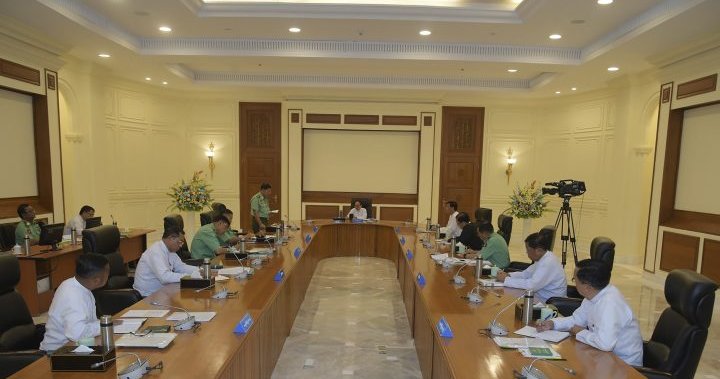
Myanmar’s promised election delayed as military extends state of emergency
Global News
The state of emergency was declared when troops arrested Aung San Suu Kyi and top officials from her government and members of her party on Feb. 1, 2021.
Myanmar‘s military-controlled government has extended the state of emergency it imposed when the army seized power from an elected government two-and-a-half years ago, state-run media said Monday, forcing a further delay in elections it promised when it took over.
MRTV television said the National Defense and Security Council met Monday in the capital, Naypyitaw, and extended the state of emergency for another six months starting Tuesday because time is needed to prepare for the elections. The NDSC is nominally a constitutional government body, but in practice is controlled by the military.
The announcement amounted to an admission that the army does not exercise enough control to stage the polls and has failed to subdue widespread opposition to military rule, which includes increasingly challenging armed resistance as well as nonviolent protests and civil disobedience, despite the army having a huge advantage in manpower and weapons.
The state of emergency was declared when troops arrested Aung San Suu Kyi and top officials from her government and members of her National League for Democracy party on Feb. 1, 2021. The takeover reversed years of progress toward democracy after five decades of military rule.
The military said it seized power because of fraud in the last general election held in November 2020, in which Suu Kyi’s party won a landslide victory while the military-backed Union Solidarity and Development party did poorly. Independent election observers said they did not find any major irregularities.
The army takeover was met with widespread peaceful protests that security forces suppressed with lethal force, triggering armed resistance that U.N. experts have described as a civil war.
As of Monday, 3,857 people have been killed by the security forces since the takeover, according to a tally kept by the independent Assistance Association for Political Prisoners.
The army-enacted 2008 constitution allows the military to rule the country under a state of emergency for one year, with two possible six-month extensions if preparations are not yet completed for new polls, meaning that the time limit expired on Jan. 31 this year.











